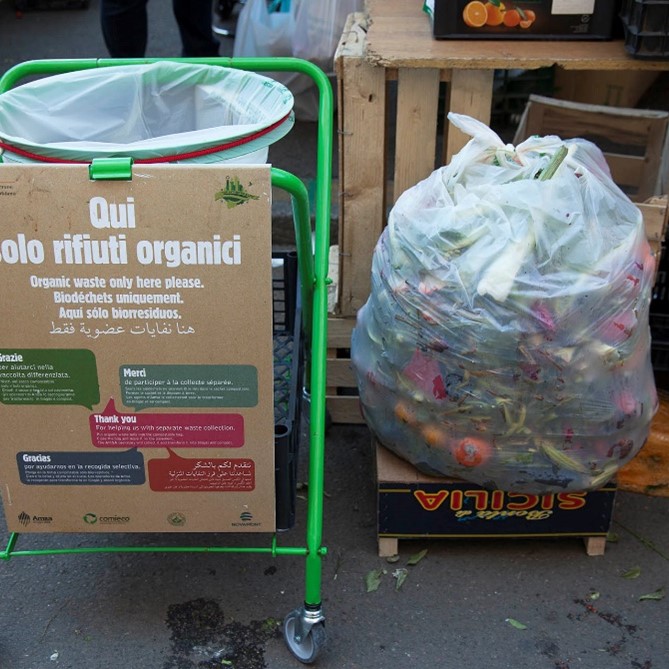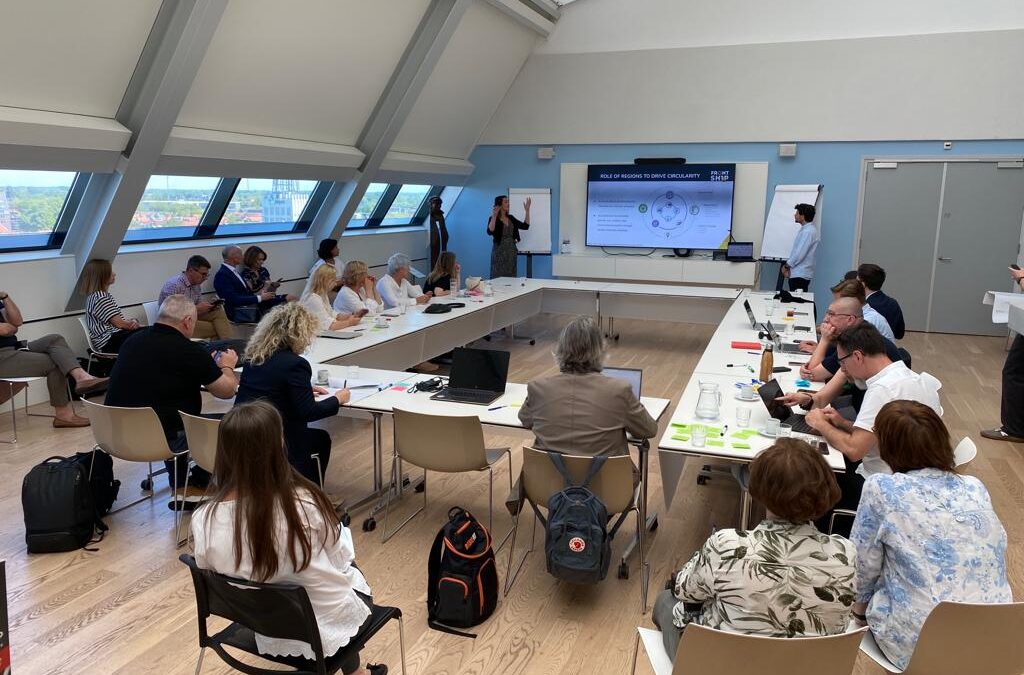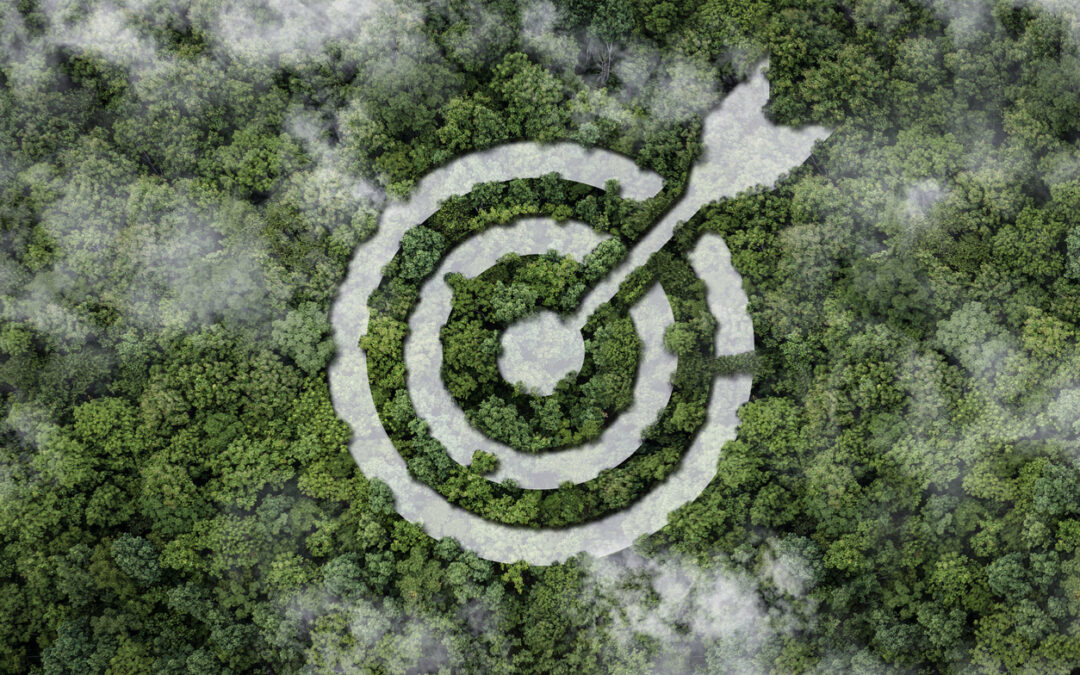Authors: Alberto Fragapane, Daniele Turati, Pieter Ravaglia
Circular products are those that are designed not to become waste at the end of their life cycle by either being reused, recycled or composted. The circular bioeconomy is crucial in promoting this eco-design concept. By applying the circular bioeconomy approach, if municipal solid waste and sludge are suitably treated, they can become a valuable source of organic matter, such as compost. This high-value product represents an important solution to two types of problems: on the one hand, providing valuable soil improvers that can improve crop productivity, minimising the use of pesticides and fertilisers, and on the other hand, preventing organic waste from ending up in landfill, which will be prohibited in Europe from the end of 2023.
These agricultural and marginal soils can be used for the production of biomass sources suitable to extract renewable raw materials needed for the production of bioproducts and bioplastics. These materials can be used to close the loop in waste collection: from soil to soil. In this context, bioplastic compostability not only avoids possible contamination of organic wastes, but also provides protection against pollution of other recyclable streams, for example, when plastic and paper are contaminated with food residues.
The use of compostable plastics bags and packaging for those products that are prone to be mixed with organic waste and/or that support the optimisation of the organic waste collection and treatment, allows the production of pure and clean compost, to be used to restore soil fertility and to capture carbon. For these reasons, Novamont has always worked in the promotion and development of national, regional and local programmes to facilitate organic waste collection in order to transform it into quality compost due to the use of compostable bioplastics.

Novamont has also undertaken national and international research and development projects on the study and monitoring of organic waste and projects of eco-design and bioplastic interception systems, including initiatives to combine different recycling technologies, such as composting, chemical recycling and mechanical recycling and to develop paper-backed packaging, which can be disposed of in both collection flows. The close collaboration with local authorities, multi-utilities and the Consorzio Italiano Compostatori (Italian consortium of composters) has been essential in developing examples of excellence that are ready to be expanded and disseminated. Thanks also to this model, Italy is currently the European leader in organic waste recycling, collecting 47% of organic waste compared with an average of 16% across the continent.
The Italian model is also at the heart of projects such as FRONTSH1P, which aspires to transfer successful models throughout the world, such as the development of separate collection systems for organic waste using biodegradable and compostable bags already developed in Turin, Milan, Paris, Barcelona, Monaco, Copenhagen and New York. The results obtained and lessons learnt can be easily transferred to other EU regions contributing to the consolidation of local circular economy and bio-economy models. FRONTSH1P project is an extraordinary opportunity to create bridges and connections between local stakeholders, local administration and industries as a new and resilient foundation for a new circular production system.



